Filter by

Boredom, Shanzhai, and Digitisation in the Time of Creative China
With its emergence as a global power, China aspires to transform from *made in China* to *created in China*. Mobilised as a crucial source for solid growth and *soft power*, creativity has become part of the new China Dream. Boredom, Shanzhai, and Digitisation in the Time of Creative China engages with the imperative of creativity by aligning it to three interrelated phenomena: boredom, shanzha…
- Edition
- -
- ISBN/ISSN
- 9789048535538
- Collation
- -
- Series Title
- -
- Call Number
- 650
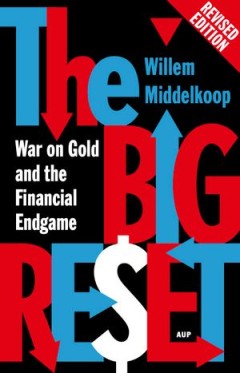
The Big Reset : War on Gold and the Financial Endgame
A system reset seems imminent. The world's financial system will need to find a new anchor before the year 2020. Since the beginning of the credit crisis, the US realized the dollar will lose its role as the world's reserve currency, and has been planning for a monetary reset. According to Willem Middelkoop, this reset will be designed to keep the US in the driver's seat, allowing the new monet…
- Edition
- -
- ISBN/ISSN
- 9789462980273
- Collation
- -
- Series Title
- -
- Call Number
- 650
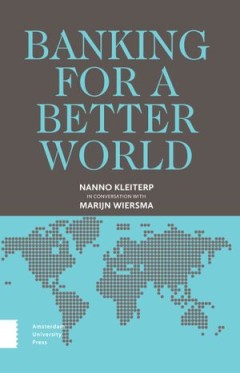
Banking for a Better World
When we look at all the challenges facing the world, including inequality, population migration, and climate change, we can see a role for development banking in nearly all of them. But will that role be played for good or ill? This book brings together two people who collectively draw on their forty-five years of experience in that world to argue that development banking can-and must-play a co…
- Edition
- -
- ISBN/ISSN
- 9789462983519
- Collation
- -
- Series Title
- -
- Call Number
- 650
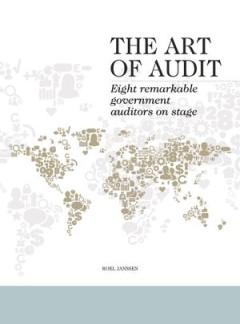
The Art of Audit : Eight remarkable government auditors on stage
Accountability, good government and public trust are intricately linked. Supreme Audit Institutions fulfil an exceptional role in the public domain, checking if governments spend their money properly. They are like 'watchdogs' for citizens and parliaments with the purpose of auditing public expenditure and examining the effectiveness of policies. They aim to strengthen the trustworthiness of go…
- Edition
- -
- ISBN/ISSN
- 9789462980914
- Collation
- -
- Series Title
- -
- Call Number
- 650
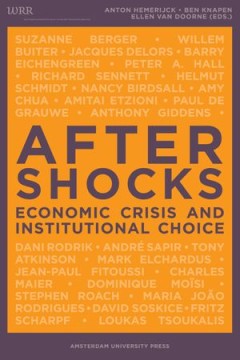
Aftershocks
Aftershocks was written in the midst of the deepest economic crisis since the Great Depression. Although it would be premature to presume to identify the repercussions of the crisis, it is clear that it will have profound aftershock effects in the political, economic, and social spheres. The book contains essays based on semi-structured interviews with leading scholars, European politicians and…
- Edition
- -
- ISBN/ISSN
- -
- Collation
- -
- Series Title
- -
- Call Number
- 650

Advertising and the Transformation of Screen Cultures
Advertising has played a central role in shaping the history of modern media. While often identified with American consumerism and the rise of the 'Information Society', motion picture advertising has been part of European visual culture since the late nineteenth century. With the global spread of ad agencies, moving image advertisements became a privileged cultural form to make people experien…
- Edition
- -
- ISBN/ISSN
- 9789048541560
- Collation
- -
- Series Title
- -
- Call Number
- 650
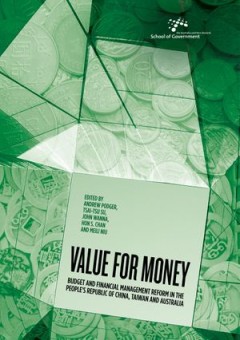
Value for Money : Budget and financial management reform in the People's Repu…
The Greater China Australia Dialogue on Public Administration has held annual workshops since 2011 on public administration themes of common interest to the People’s Republic of China, Taiwan and Australia. This book presents and discusses a selection of papers developed from the Dialogue’s fifth workshop held in late 2015 hosted by the National Taiwan University in Taipei. The theme, ‘Va…
- Edition
- -
- ISBN/ISSN
- 9781760461799
- Collation
- -
- Series Title
- -
- Call Number
- 650
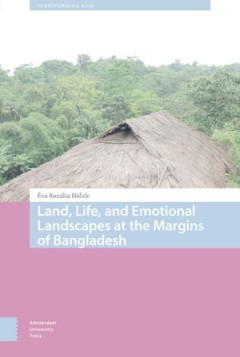
Land, Life, and Emotional Landscapes at the Margins of Bangladesh
Drawing on two years of ethnographic research in the north-eastern borderlands of Bangladesh, this book focuses on the everyday struggles of indigenous farmers threatened with losing their land due to such state programmes as the realignment of the national border, ecotourism, social forestry and the establishment of a military cantonment. In implementing these programmes, state actors challeng…
- Edition
- -
- ISBN/ISSN
- 978 90 4855 336 5
- Collation
- -
- Series Title
- -
- Call Number
- 307.33 HOL l
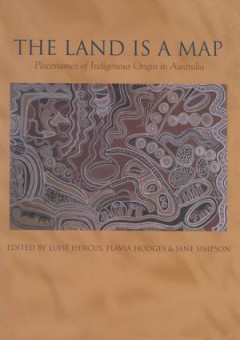
The Land is a Map : Placenames of Indigenous Origin in Australia
The entire Australian continent was once covered with networks of Indigenous placenames. These names often evoke important information about features of the environment and their place in Indigenous systems of knowledge. On the other hand, placenames assigned by European settlers and officials are largely arbitrary, except for occasional descriptive labels such as ‘river, lake, mountain’. T…
- Edition
- -
- ISBN/ISSN
- 9781921536571
- Collation
- -
- Series Title
- -
- Call Number
- 919.400 3 LAN

The Rahui: Legal pluralism in Polynesian traditional management of resources …
This collection deals with an ancient institution in Eastern Polynesia called the rahui, a form of restricting access to resources and/or territories. While tapu had been extensively discussed in the scientific literature on Oceanian anthropology, the rahui is quite absent from secondary modern literature. This situation is all the more problematic because individual actors, societies, and stat…
- Edition
- -
- ISBN/ISSN
- 9781925022919
- Collation
- -
- Series Title
- -
- Call Number
- 301 BAM r
 Computer Science, Information & General Works
Computer Science, Information & General Works  Philosophy & Psychology
Philosophy & Psychology  Religion
Religion  Social Sciences
Social Sciences  Language
Language  Pure Science
Pure Science  Applied Sciences
Applied Sciences  Art & Recreation
Art & Recreation  Literature
Literature  History & Geography
History & Geography